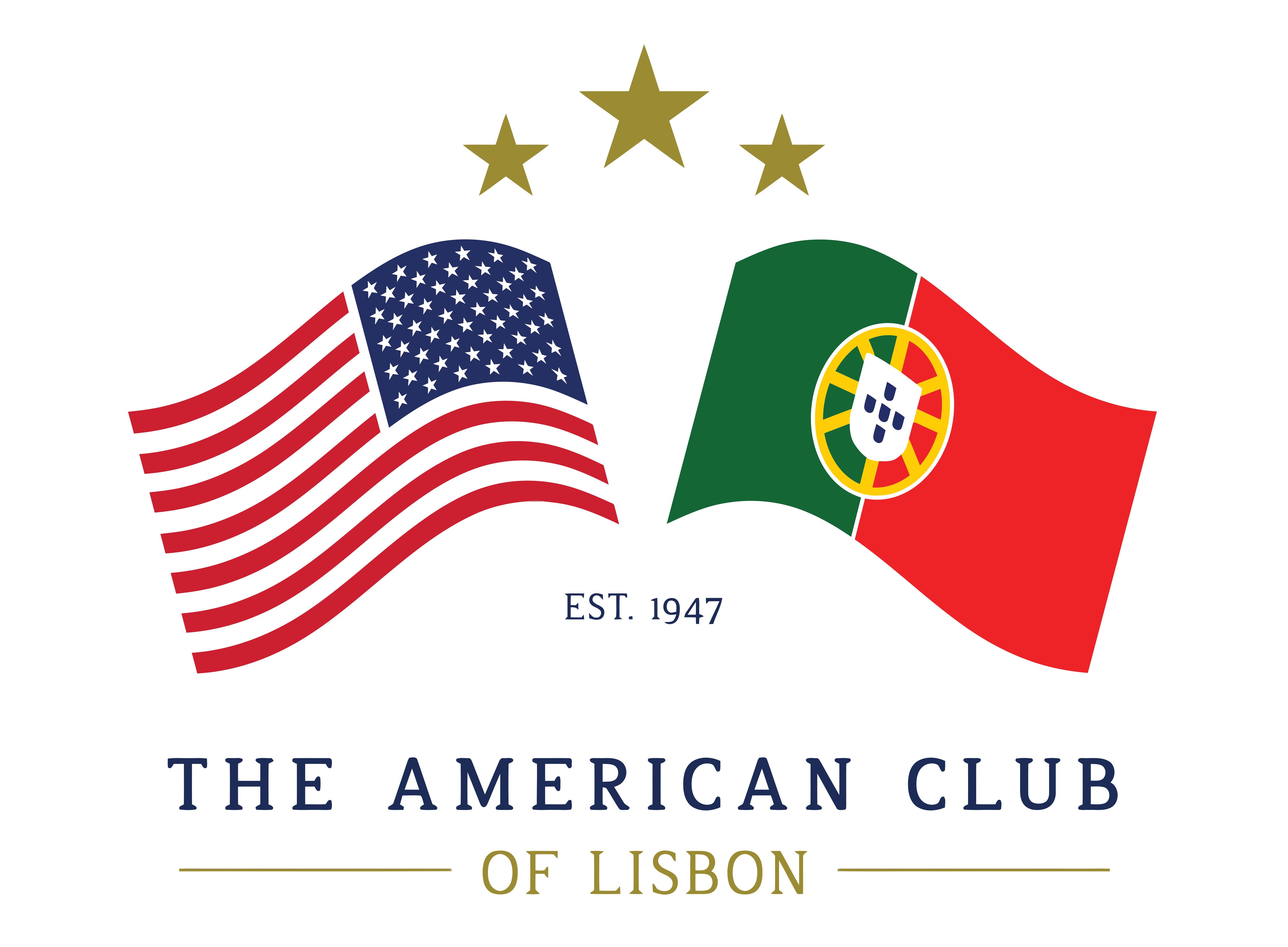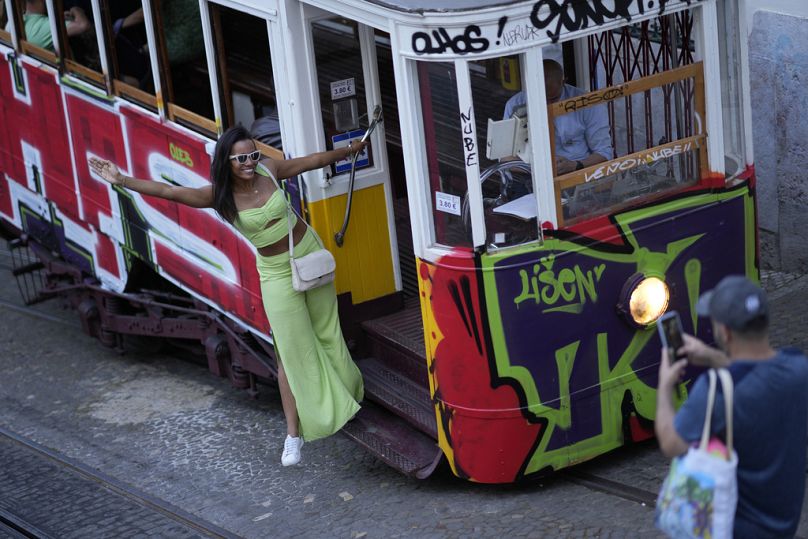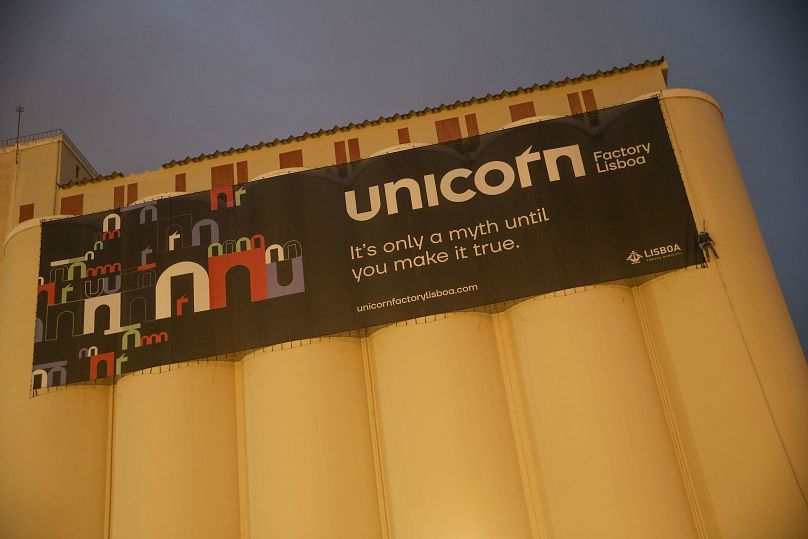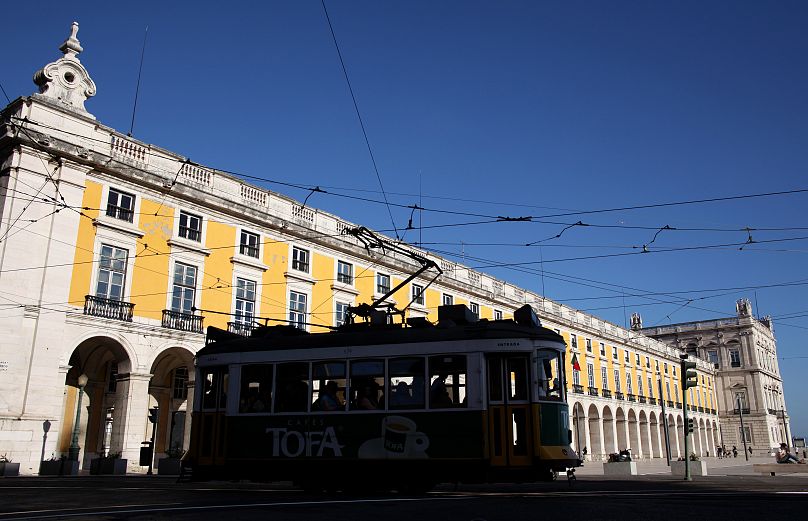As the “City of Seven Hills,” Lisbon is blessed with a prodigious number of miradouros, or scenic views.
They soar above the streets to reveal a sweeping panorama of history: medieval alleys and neoclassical boulevards, Moorish tiles and mighty football stadiums 一 and, perhaps, a clear view to the future.
Beneath the Miradouro de Santa Luzia, near the water, stands Startup Lisboa, an incubator where dozens of early-stage startups share desks and dreams.
A few kilometres away, the newly established Unicorn Factory is aiming even higher.
Lisbon, where one of us is mayor, is betting on startups because of a simple truth: disruptive innovation and established institutions are not opposites; they need each other.
Urban density and diversity supercharge our capacity as social animals
It makes sense for startups to work on the municipal level; innovation works best at the city scale.
In 2022, over half of the world’s top-ranked research universities were located in cities with more than 500,000 inhabitants according to World University Research Ranking.
Every one of the world’s 30 most dynamic startup ecosystems was based in the same metropolitan areas.
Of this group, a few dominate: nearly half of the world’s VC funding flows to just a handful of cities.
Why do cities enjoy these advantages, and why do the rich get richer? The answer is simple: urban density and diversity supercharge our capacity as social animals.
A recent study on research and cooperation at MIT showed quantifiable benefits from spatial proximity; even moving within buildings on campus increases the odds that researchers from across various disciplines collaborate on papers.
The scientific magazine Nature published a comprehensive analysis of the correlation between diversity and research quality, showing that 10% of highest-ranked papers benefited from the involvement of so-called “scientific outsiders from distant disciplines.”
Cities are not only perfect venues for startups, they serve up the problems that startups can solve. It is in cities where one faces reality: crowded sidewalks, poorly lit streets, housing shortages, and even air pollution.
Building bridges to attract unicorns
Europe’s cities are incredible generators of knowledge, but they have struggled to turn knowledge into jobs.
As its economic growth slows compared to the US and Asia, Europe desperately needs to switch gears and transform scientific findings into innovation and entrepreneurship.
In 2015, the European Union created the European Innovation Council as a platform for scaling up European start-ups and investing in disruptive innovation.
This new institution has been a success and helped a lot of companies to grow. But something was missing: a bridge between the continent-wide initiative and the local level where, as discussed, innovation happens.
One European capital city managed to fill up that gap with a unique and paradigm-changing innovation program: Lisbon.
In 2022, the city established the Unicorn Factory Lisboa to achieve a single goal: attract and cultivate “unicorns” 一 start-ups valued at over one billion euros.
Startups do not only secure revenue for Lisbon; they secure a future. In less than a year, Lisbon has drawn 12 pre-existing unicorns from around the world 一 the US, China, Israel, Brazil, and India 一 and built new infrastructure to create more from scratch.
The Unicorn Factory has simultaneously increased the number of early-stage startups and selected the top 1% of most successful companies to help them jump into the next level with access to world-class education programs, mentorship with C-level executives and partnerships with more than 60 international corporate partners, among which some of the largest VCs operating in Europe.
Not only do the Factory’s companies generate revenue, they offer the exciting jobs that Portuguese youth are pining for.
Lisbon’s promise is real
Today, a third of Portuguese people live abroad, especially graduates. The country, and indeed the continent, can raise young people, but not keep them. We do not need to accept this fate.
This August, Pope Francis himself visited Lisbon to celebrate the World Youth Day. His words were clear: “Lisbon is the city of the future.”
The words might sound strange in our ears 一 isn’t the city of the future in Dubai or Silicon Valley? But their promise is real. Europe’s cities can claim the future; they just need to start up.
Lisbon’s journey from a city of tradition and history into a modern innovation hub is a compelling case of urban transformation.
Through strategic investments, supportive policies, and visionary projects, Lisbon has harnessed the power of innovation to revitalise its economy, improve its residents’ quality of life, and position itself as a global leader in the technological landscape.
As other European cities seek to follow in its footsteps, could Lisbon lead the way in promoting 27 local versions of the European Innovation Council?
Carlos Moedas is the Mayor of Lisbon. Carlo Ratti is the director of the Senseable City Lab at the Massachusetts Institute of Technology.
At Euronews, we believe all views matter. Contact us at view@euronews.com to send pitches or submissions and be part of the conversation.



